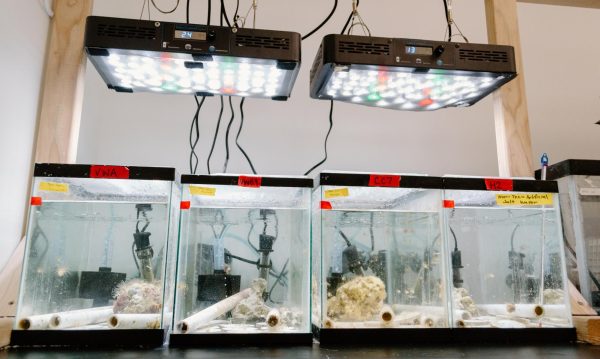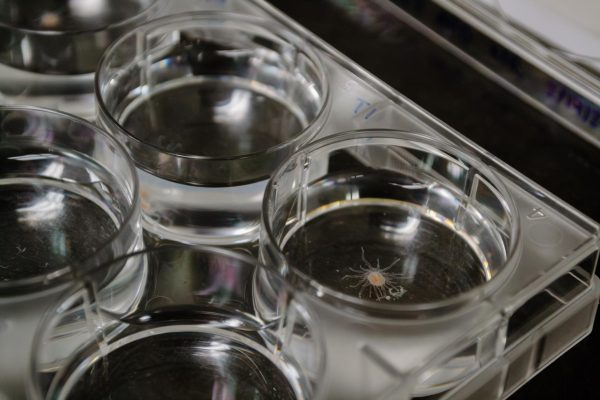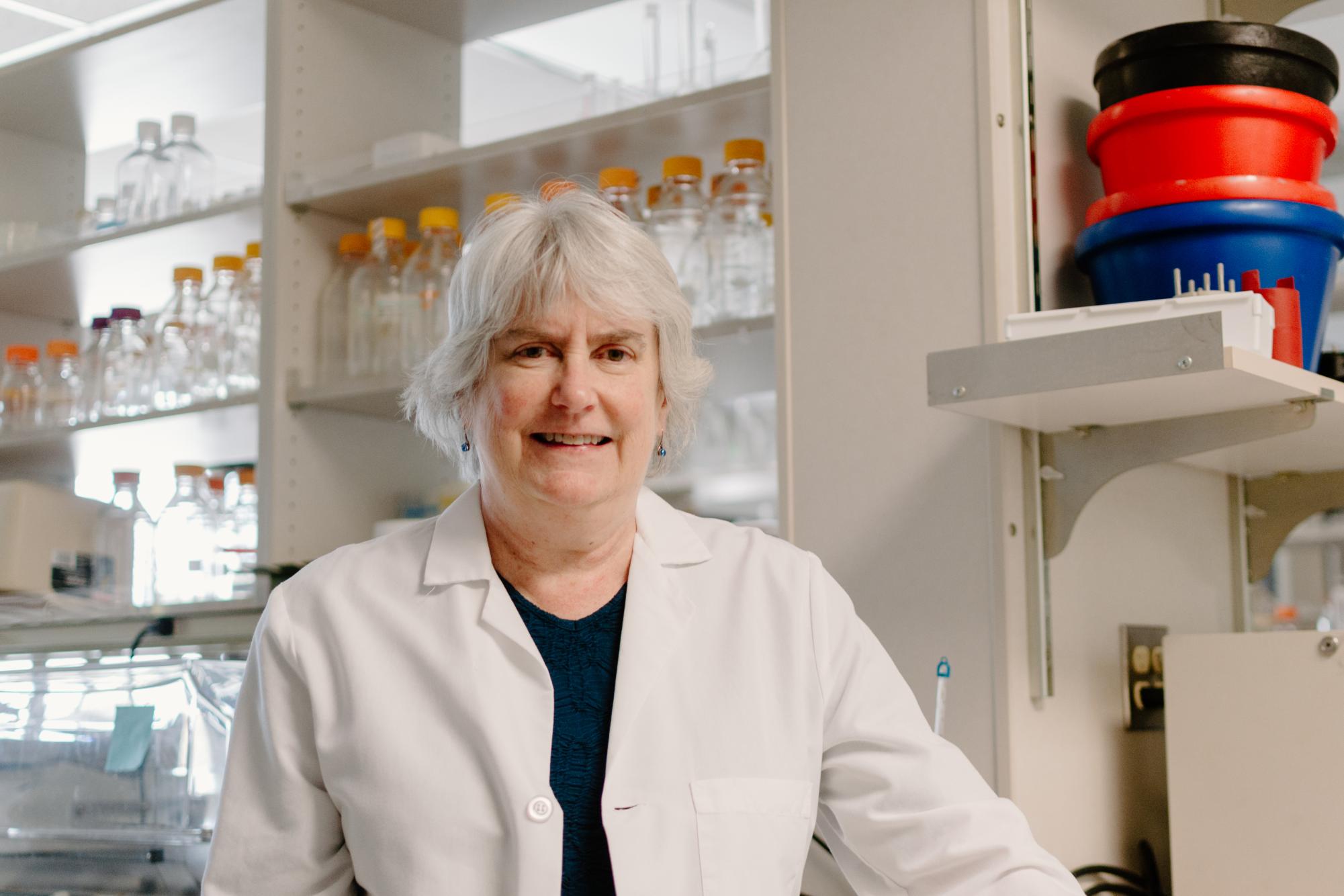What began as a curious drive for the outdoors has now bloomed into a vast expansion of knowledge on a small, yet incredibly influential creature found throughout the oceans.
Oregon State University Professor Virginia Weis has worked to expand the knowledge of corals worldwide throughout her career, her research continues to impact the scientific community and students at OSU.
Growing up as the daughter of an English professor, Weis’ childhood environment brimmed with support from those around her to explore.
“I was raised in an academic environment where curiosity and discovery were encouraged, and that is a wonderful gift to have as a young person,” Weis said.
Her interest for the outdoors and nature, combined with the opportunities for global travel, pushed her to a bachelor’s degree in biology from Yale University.
A cell biology class at Yale was a defining moment in Weis’s career, an event she described as her “lightbulb” moment. While doing basic research on mice retinas, utilizing an electron microscope, she was hooked on conducting research.
During her senior year, Weis was introduced to the field of marine biology during her continued conduction of research. Under Leo Buss, Weis studied the larvae of a hydroid, a saltwater organism often found in colonies on the backs of hermit crabs. Her time at Yale allowed her to publish two peer reviewed papers as an undergraduate.
After obtaining her bachelor’s degree, Weis went on to receive her doctorate from the University of California at Los Angeles. Looking for a lab to join as a graduate student, Weis was first introduced to coral biology and coral-dinoflagellate symbiosis, the relationship between coral polyps and the photosynthetic algae within them, by Leonard Muscatine’s lab at UCLA.

“Sometimes your career can be a meandering path that doesn’t necessarily have directionality that you know is going to pay off,” Weis said.
She believes that the choice of working under Muscatine ultimately set the stage for her lifelong career in the coral field.
Weis’s work with symbiosis expanded away from corals during her first post doctoral fellowship at the University of Southern California. For two years Weis worked on researching the symbiotic relationship of squid and luminous bacteria with Margaret McFall-Ngai.
Her second post doctoral fellowship was with Paul Levine at Stanford University’s Hopkins Marine Station. Corals became Weis’s focus once again when she began studying the symbiosis within West Coast sea anemones.
“That symbiosis is the centerpiece of the whole coral reef ecosystem, it is important to know how that functions, and sadly how its not functioning in today’s world, and very importantly how our understanding of how the symbiosis works can inform solutions to helping corals become more resilient,” Weis said.
Accompanying the academic side of life, Weis was also a mother to two young children during her time in her fellowships. Weis gives gratitude to her late husband and his contribution to family life as she built her career.
“A very important part of my story is the support I received from my late first husband, who was instrumental in supporting my career and sharing the work of raising kids,” Weis said.
Weis arrived at OSU in 1996, where she began as an assistant professor and worked her way up the academic ladder.
“Not everyone is like this, but I just worked my way through the ranks,” Weis said.
She has since been the associate dean, head of integrative biology and a professor at OSU. Her lab, the Weis Lab, looks to research coral-algae symbiosis utilizing the model organism Aiptasia, a common sea anemone which closely resembles coral and can be used to understand coral and algae relationships.
During her time at OSU, Weis was approached to help make the OSU biology series more inquiry based.
“Students don’t learn as much as when they feel more invested in the process, that there is something unknown, that they could be discovering something,” Weis said.
Integration of Aiptasia into the introductory biology courses was a large part of creating an environment where students felt invested in their research. Undergraduate students and graduate students also assist in the Weis Lab, helping to further the understanding of corals worldwide.
“It’s one thing to just read about how (the Aiptasia) interact … but it’s another thing to see it for yourself, there is a better understanding of it,” said Maja White, a student in the introduction to biology course and a marine biology major at OSU.
Erick White, a doctoral candidate and graduate student employee at Weis Lab, began his journey with a research experience for undergraduates internship in 2014, his junior year. It was then that he worked with OSU’s College of Earth, Ocean and Atmospheric Sciences. After some time off, he was searching for a graduate program and encountered Weis.

“I really liked the types of questions she asked, she was very interested in understanding mechanisms of how systems work,” Erick White said.
Erick White has worked with several undergraduate students in their pursuit of lab research.
“Exposing them to a chance to use some of the tools that we have, conducting research, presenting research, lab meetings, makes an impact,” Erick White said.
Maja White has enjoyed hands-on experience and learning and she feels that learning the experimental process will help herself and others in their pursuit of research opportunities within academics or within other fields.
Weis has produced hundreds of publications and is the recipient of countless awards, such as the Eminence in Research Award from the International Coral Reef Society, named a distinguished professor by OSU and Women of Achievement Award by OSU. Weis was also named a fellow by the American Association for the Advancement of Science in 2022.
Beyond the awards, Weis is more interested in the impact she is able to make with students.
“The thing that I am super proud of is the success of the people who have been in my lab … your impact magnifies beyond just your own achievements,” Weis said.
Weis continues her research in her lab and working with students, she is also working on preservation of corals using cryopreservation techniques.
“Her impact on the field speaks for itself, but also the impact that she has had on her students is pretty amazing,” Erick White said.



















































































![Newspaper clipping from February 25, 1970 in the Daily Barometer showing an article written by Bob Allen, past Barometer Editor. This article was written to spotlight both the student body’s lack of participation with student government at the time in conjunction with their class representatives response. [It’s important to note ASOSU was not structured identically to today’s standards, likely having a president on behalf of each class work together as one entity as opposed to one president representing all classes.]](https://dailybaro.orangemedianetwork.com/wp-content/uploads/2025/03/Screenshot-2025-03-12-1.00.42-PM-e1741811160853.png)
























